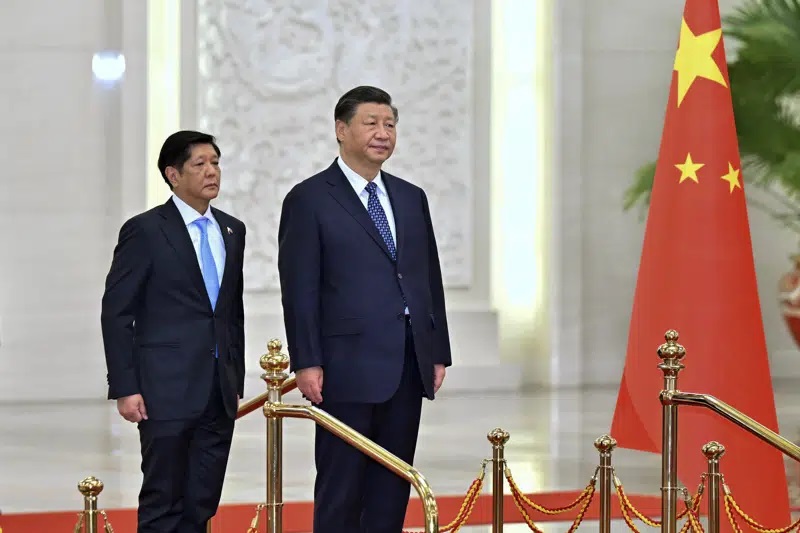
PRESIDENT Ferdinand R. Marcos, Jr. said he hopes the country’s ongoing talks with China for the joint oil exploration in disputed areas in the South China Sea and business deals will finally “bear fruit.”
Marcos made the statement during his meeting with Chinese President Xi Jinping on Wednesday evening.
In their meeting, Xi promised to help Manila in addressing the trade deficit between the Philippines and China.
“I really hope—I would very much like, as you have suggested, Mr. President, to be able to announce that we are continuing negotiations and that we hope that these negotiations will bear fruit because the pressure upon not only China, not only the Philippines but the rest of the world to move away from the traditional fronts of power,” Marcos said of the maritime issues with China.
Last month, the President announced they are eyeing an alternative to a government-to-government (G2G) agreement with China to push through with a joint oil exploration.
This, after the previous administration terminated the said talks owing to concerns the G2G agreement will be deemed unconstitutional.
Under the 1987 Constitution, the Philippine government should have full control of exploration, development and use of natural resources.
During his meeting with Marcos, Xi was reported to have reiterated China’s interest to complete the joint exploration deal.
Trade deficit
Aside from the exploration, both leaders also talked about addressing the trade deficit between Philippines and China.
In 2021, the country’s imports with China was at US$26.8 billion, while its exports with the Asian super power is only at US$11.55 billion.
Among the proposed measures to increase the country’s exports to China is the so-called “Durian Protocol.”
“In fact, there has been created what we are now calling the Durian Protocol, because they are opening their trade to imports of Durian and other agricultural products from the Philippines so that we can redress the imbalance in our imports and exports from China,” Marcos said.
The President listed the other possible areas of cooperation of the country with China: on tourism, culture, education, and infrastructure among others.
He said the partnerships can also extend to the private sector.
“We spoke about the infrastructure and the continuing acceleration of investment by the Chinese government and Chinese corporations in the infrastructure development in the Philippines,” Marcos said.
China is one of the country’s top trade partners. From January to September last year, the Philippines’s total trade with the Asian neighbor was at US$29.1 billion.
“We came to very — fairly detailed discussions which we — which made the meeting run very long and that’s why I’m actually very optimistic because President Xi seemed to be genuinely interested in all of these issues and finding a way to move forward to again strengthen the relationship between China and the Philippines,” Marcos said.
Image credits: Yue Yuewei/Xinhua via AP
